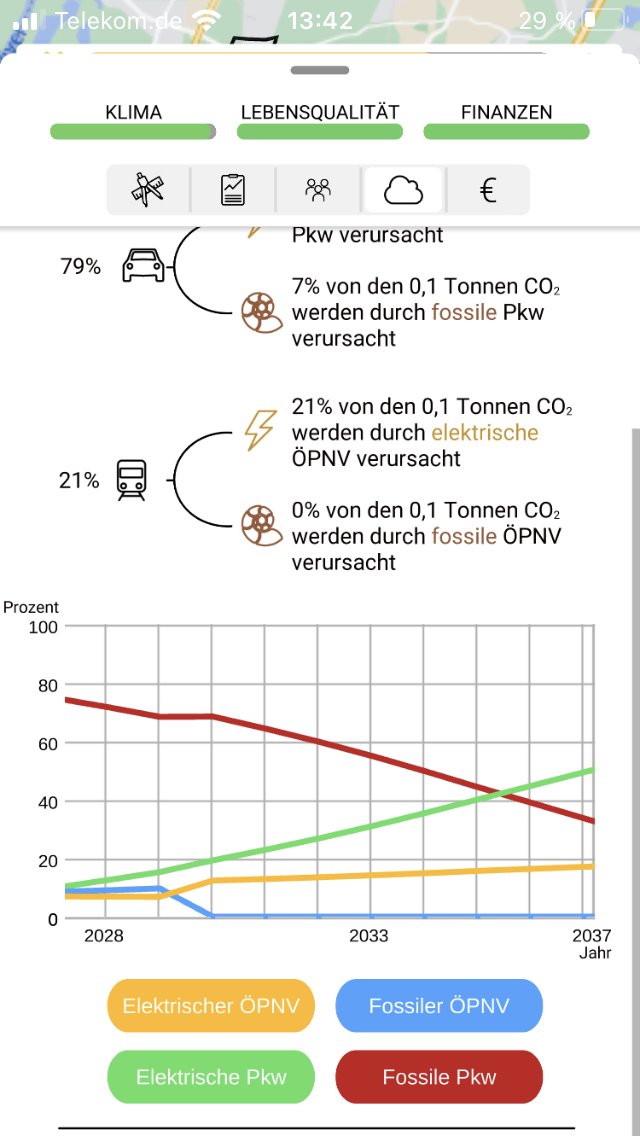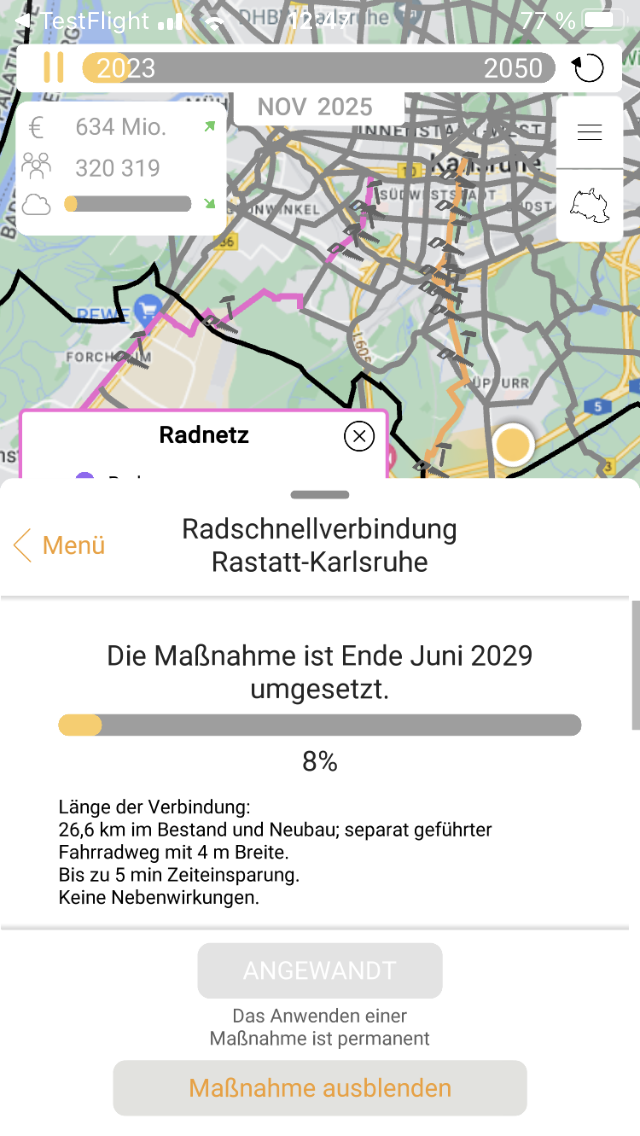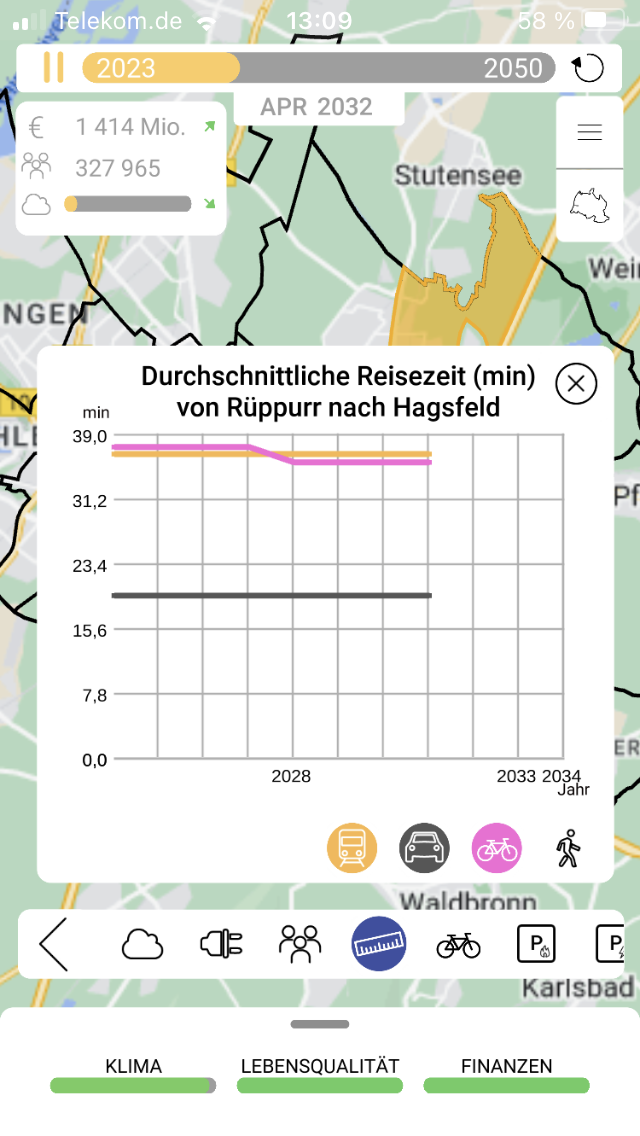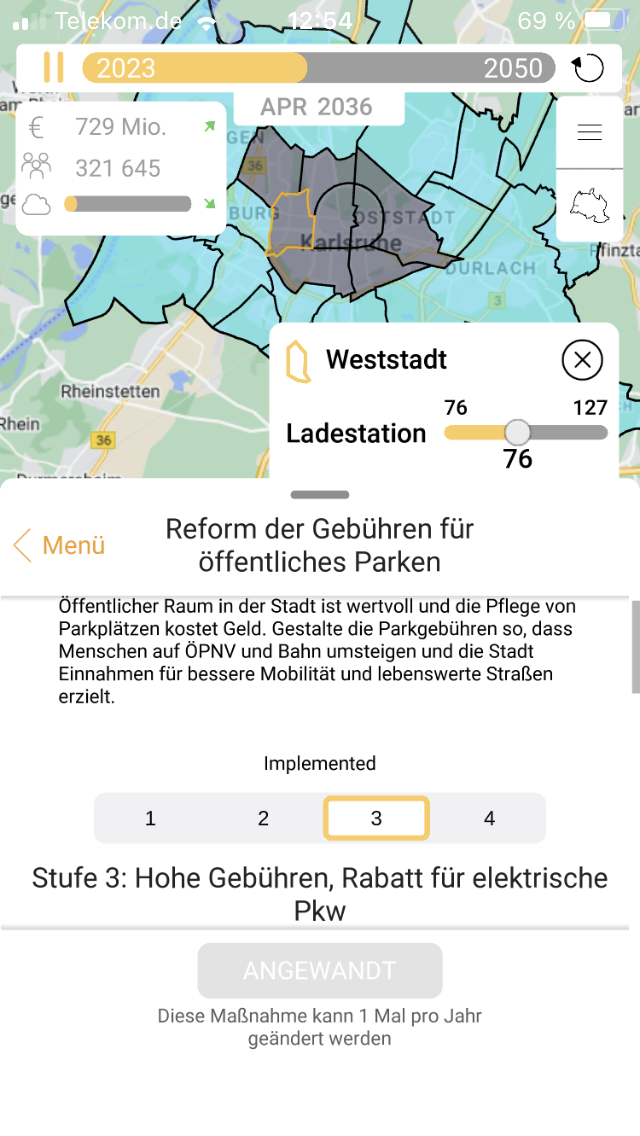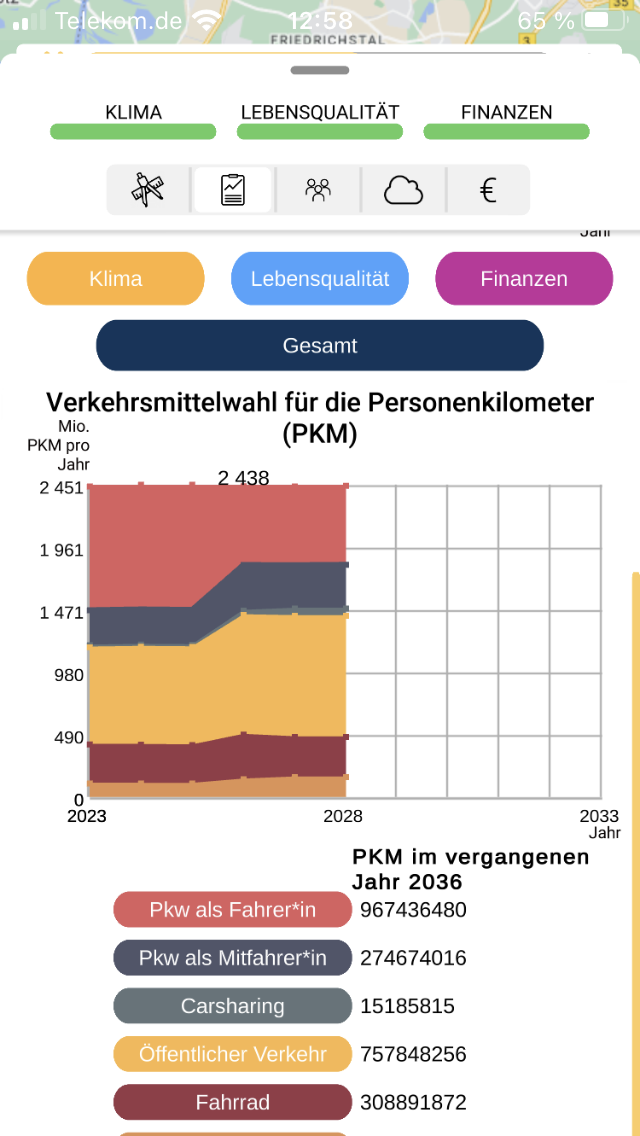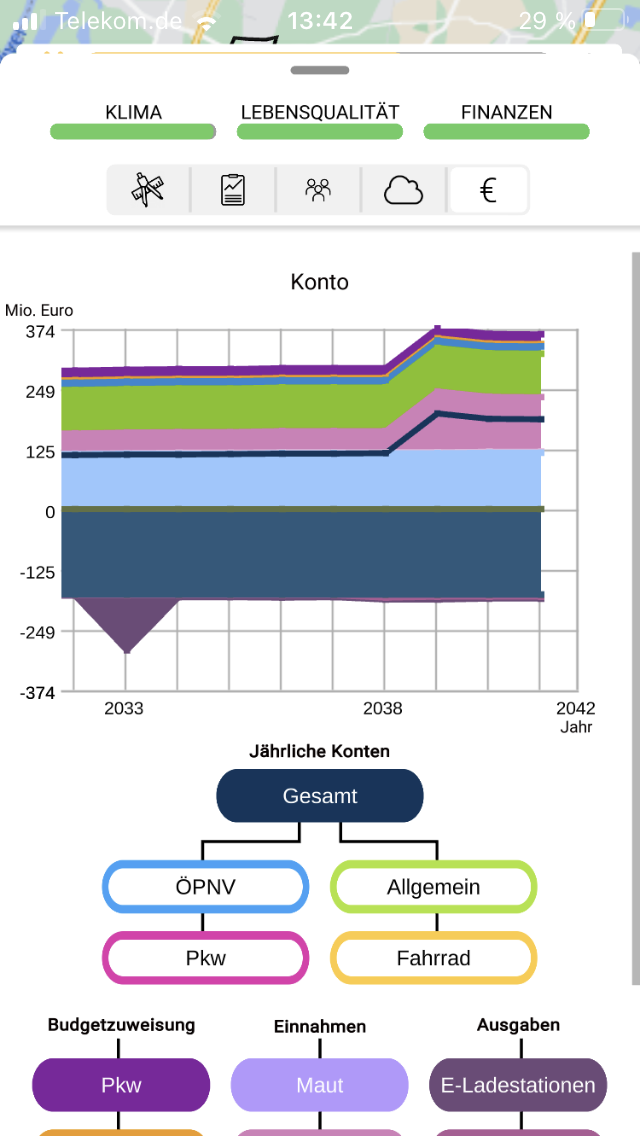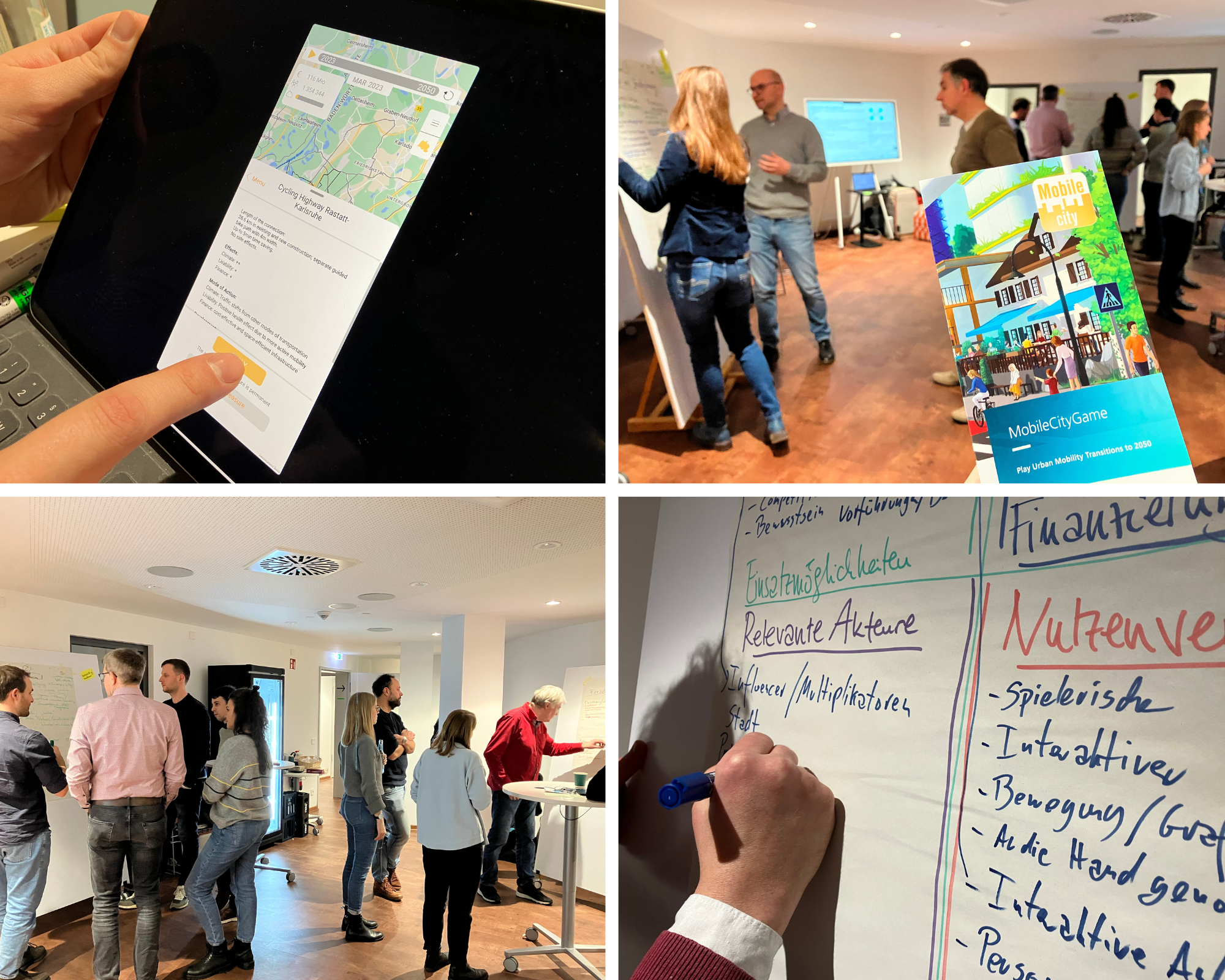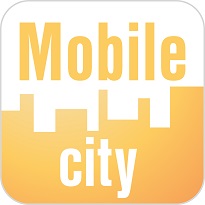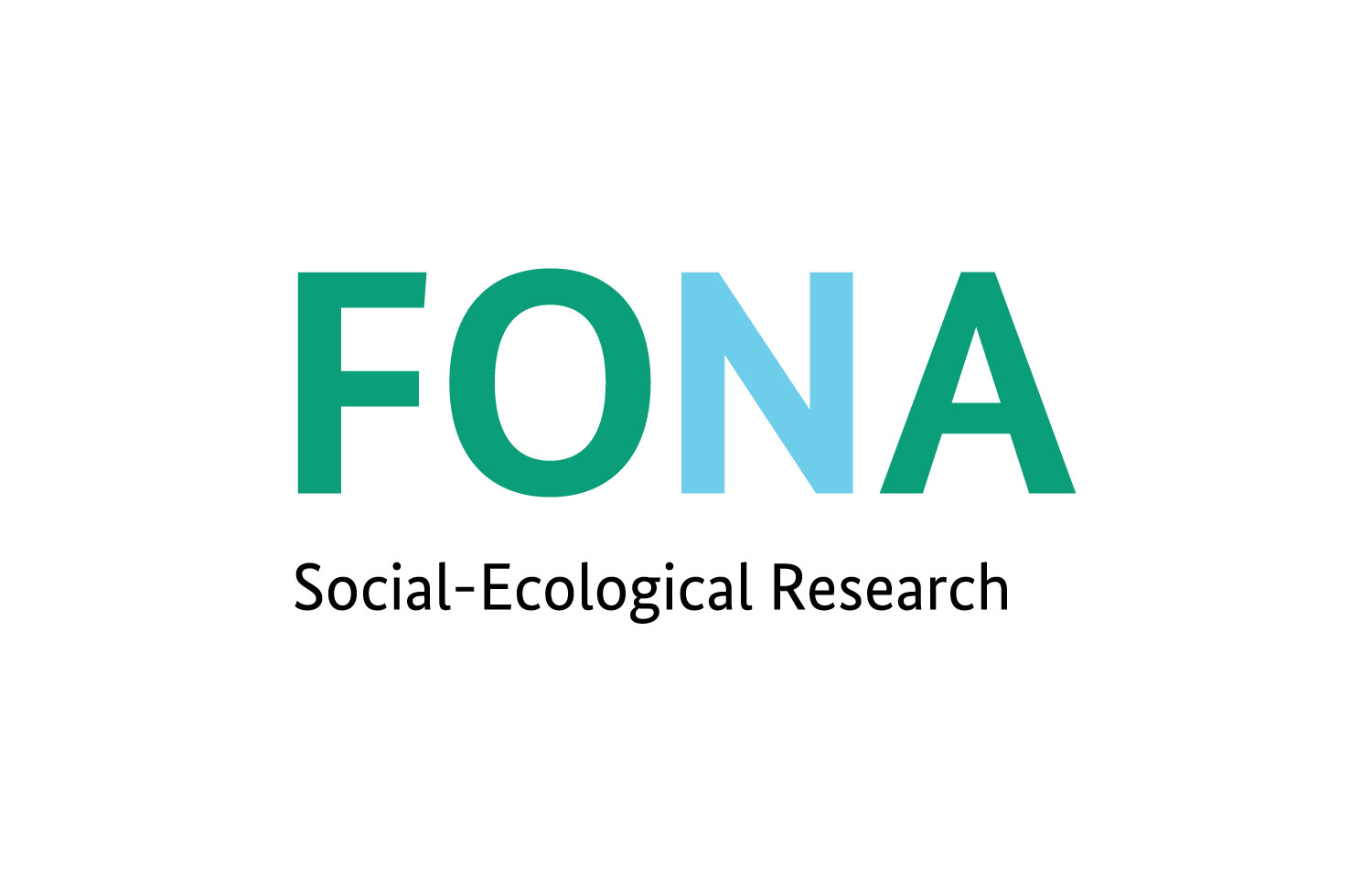MobileCityGame project and MobileCity app
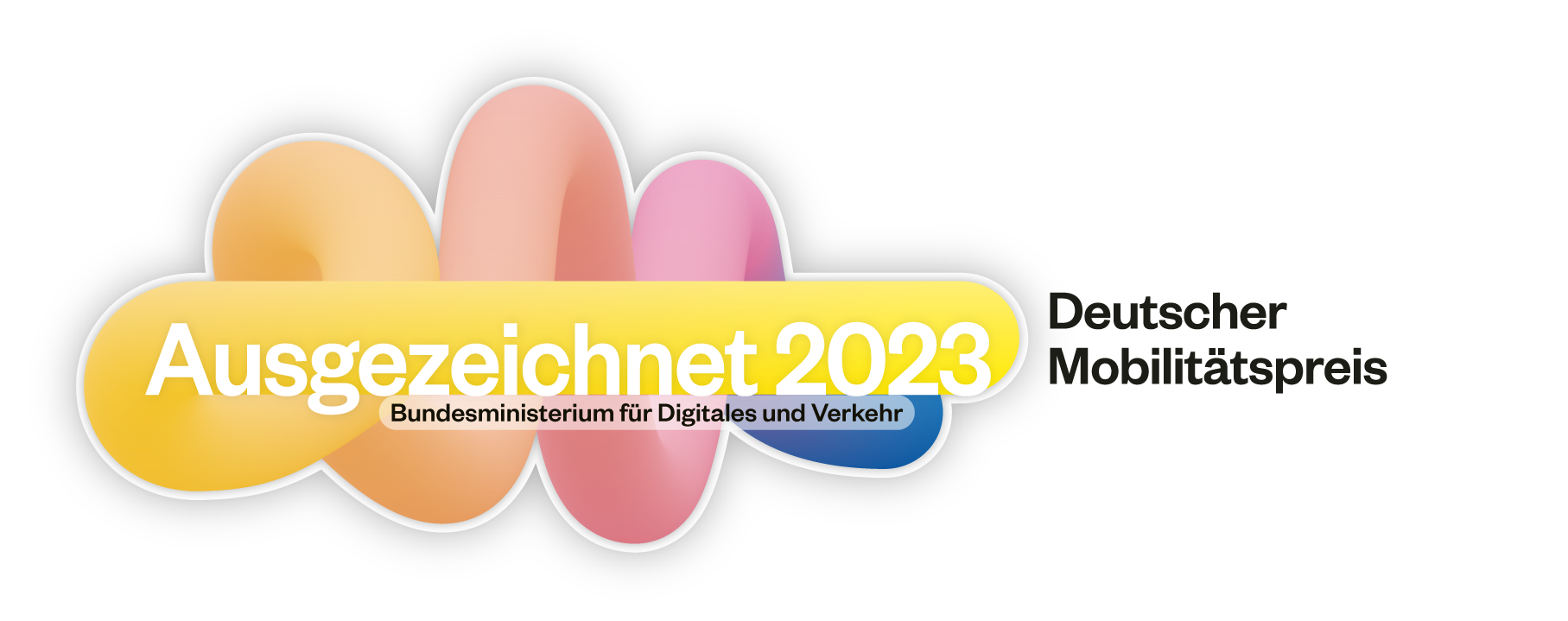
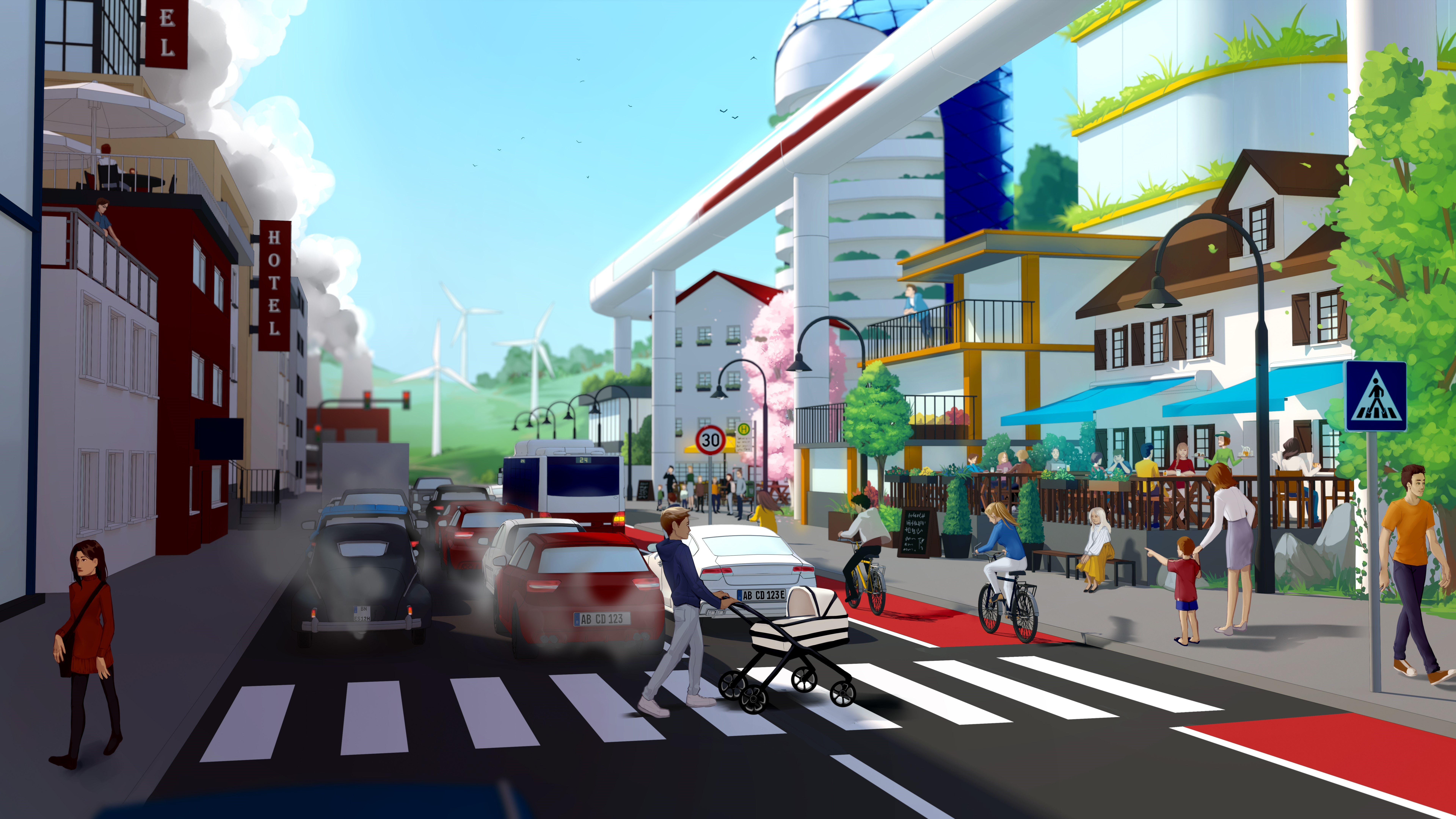
Mobility must change - but how? With the MobileCity app, you can playfully try out on your own cell phone what an ecologically and financially sustainable urban mobility system could look like by 2050.
Our MobileCity app is the result of the research project MobileCityGame and the first fully developed dynamic traffic and mobility model for easy scenario development, impact assessment and participation processes. The research project was awarded with the German Mobility Prize by Federal Minister of Transport Volker Wissing in 2023.
In the MobileCity app, users try to make transport in their city climate-neutral, convenient and financially viable. Build cycle lanes? Increase parking fees? Or set up additional e-charging stations? Players are in control and directly experience the consequences of their decisions for the environment, quality of life and the municipal budget. The first use case is the city of Karlsruhe.
What does the MobileCityGame project want to achieve?
The MobileCityGame offers urban planners, non-governmental organizations, the scientific community and the general public an intuitive tool for developing and evaluating scenarios for mobility planning in cities.
For whom is MobileCity app useful?
- For political decision-making and urban development: Administrative decision-makers can use the MobileCity app to quickly evaluate future mobility paths for their city in meetings or workshops. With its survey and feedback features, the app can facilitate citizen participation.
- For science and education: In schools and universities, the MobileCity app can be used to improve learners' understanding of the opportunities, limitations, and interdependencies of urban mobility systems. The built-in tutorial provides teaching incentives and the opportunity for knowledge transfer.
- For communication and outreach: MobileCity app can help citizens to better understand policy making - and it's also fun! Its graphical interface and the link to real city maps can help to compare the actions in the game with the real developments in one's own home city.
Playfully shaping the transformation of urban mobility: The research behind our MobileCity app
Using a cooperative and interdisciplinary approach of gamification, citizen science and participation, the interdisciplinary research project MobileCityGame develops a computer-based serious game for the low-threshold and generally comprehensible illustration of complex traffic and urban planning contexts and decision options. Existing simulation models of traffic planning and development as well as technology and behavioral data are linked to a dynamic overall model with a planning horizon until 2050. The result of MobileCityGame is the MobileCity app, a fully operational and calibrated demonstrator of an interactive simulation game for urban sustainability and mobility policy using the example of the city of Karlsruhe.

